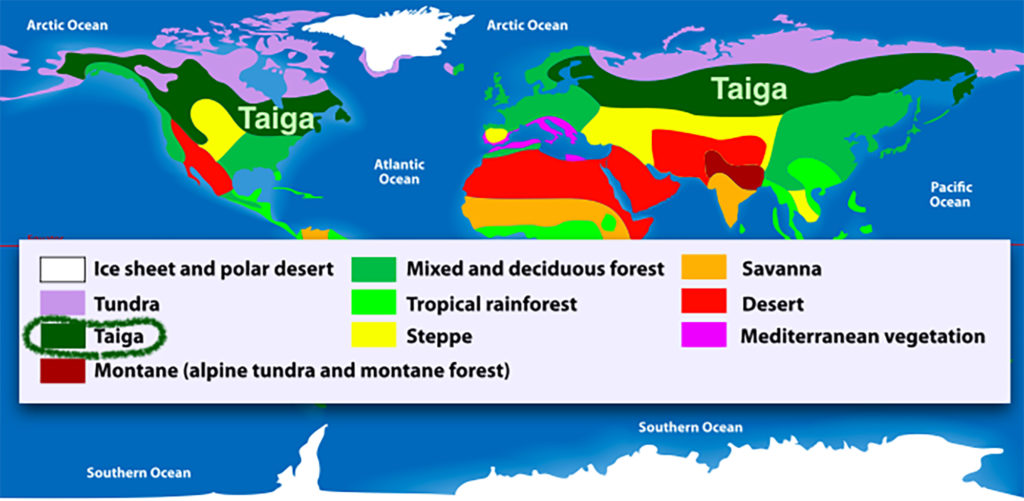
Taiga Boreal Coniferous Forests


Taiga Objectives:
- Provide the climate characteristics of taiga boreal coniferous forests.
- Distinguish between angiosperm and gymnosperm trees, providing characteristics and examples of each.

The Taiga biome covers a huge swath of land in the northern hemisphere, and people have inhabited areas of the Taiga in low numbers for thousands of years. Despite this, many people are unaware of this incredible biome.
This video introduces the taiga including a few aspects you may already be familiar with.

Taiga are cold with moderate precipitation. However they are warm enough to not have ____ in the soil like the tundra.

The taiga is warm and wet enough for the coniferous trees that photosynthesize year-round.
Countries with taiga typically have well-developed forestry industries, it is typically too cold and dry for grain agriculture. Although these forests are the most stable, there have been increased large-scale fires in recent years.

Tree Classification
We will be studying trees repeatedly in this course. This video begins our introduction to how they are classified.
Each ecosystem has its own set of hazards to consider in advance. In all forests, high winds and falling branches are a specific risk.
Coniferous trees dominate the taiga and temperate coniferous forests.
This video introduces coniferous trees.
Are coniferous trees (conifers) taxonomically classified as gymnosperms or angiosperms?
Conifers trees bear their seeds in cones instead of fruits. List two different examples of coniferous trees.
When do conifers lose their leaves if not all at once like deciduous trees?
The next section heads to the temperate forests with a more moderate climate than the taiga.

Check your knowledge. Can you:
- Provide the climate characteristics of taiga boreal coniferous forests?
- Distinguish between angiosperm and gymnosperm trees, providing characteristics and examples of each?



